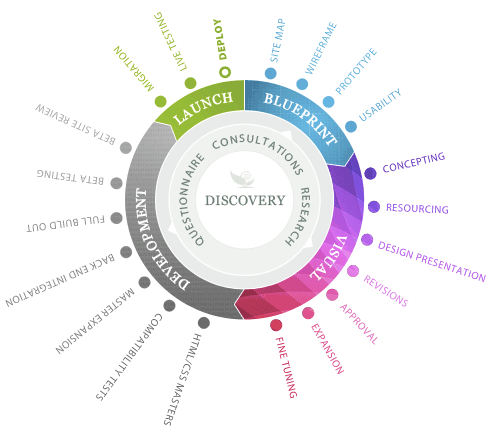Web development is a flexible role that is of critical importance for enterprises in today’s connected, digital landscape. Every organization needs a website, so software programmers are constantly in demand for their skill set and experience. Web developer jobs in San Francisco, and other parts of the US are continually open for potential candidates who wanted to be part of their team. Workers are attracted to the IT industry due to its multifaceted and ever-growing nature and the fact that it provides remuneration based on knowledge and expertise and not level of education. There are many available disciplines, from mobile to web and API, and it is very much a viable and long-term career path for those willing to create, build and exhibit their talent.
5 Actionable Steps to Building a Successful Career in Web Development
1. Education
The great thing about web development is that there is no exclusive one-stop solution for education. Whatever your background and experience, you can forge a new career in IT if you have the determination to succeed. The self-teaching route is perhaps the hardest road to a web-based career as it requires incredible self-discipline and a near obsessive desire to create and build. A general Computer Science college degree is best for those that prefer a more structured, academic environment and a natural route to employment. Finally, short-term intensive boot-camps can be undertaken for an education in very specific areas of web development and web design.
2. Experience
Going beyond book learning and applying the skills that you have been taught in real-world settings is the best way to kick-start your career. There may not be an abundance of job opportunities to begin with, but you can gain valuable experience by building on the web on a daily basis. This is important to remember – you don’t have to finish school before you start thinking about building a website from scratch. Improving your practical skills in JavaScript, Java, CSS and Ruby as you learn is recommended.
3. Freelance
Becoming a freelance web developer will enable you to be your own boss and select projects that are suited to your requirements and pay expectations. Freelancing is a different proposition to permanent employment in various aspects, so you may want to use an umbrella company to streamline the process and get access to employment rights and other perks and benefits.
4. Find a niche and build
You can stand out from the crowd by honing in on a particular niche within web development. While being a Jack of all trades is appealing, your value will be higher if you are an expert in a particular set of skills. This means that rather than simply being a catch-all web developer, clients will champion your work for solving very specific problems. Try to look out for up-and-coming languages to leverage, such as Swift, Node.js and Ruby on Rails.
Now you have education, experience and a niche, you are ready to practice your skills effectively, build your own ideas, and exhibit them to interested parties. Every web developer should have a portfolio website, and it is here that you can display your full repertoire of skills. It also acts as a handy reference for potential clients and customers. You should also try to build a personal brand by using social platforms such as YouTube and Twitter for online marketing.
Once you have made the transition into web development, you can concentrate on climbing the career ladder through hard work and accomplishments and by gradually building your skill set.







